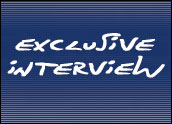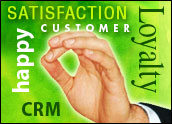
The European Commission, the regulatory body of the European Union, today removed the final anti-trust barrier to Oracle’s takeover of PeopleSoft.
Not only did the European Commission meeting in Brussels, Belgium, end its yearlong consideration of the merger in Oracle’s favor, it did so without stipulations.
“The EU evaluation was whether the combination of Oracle and PeopleSoft would hinder competition,” said Jeff Comport, an analyst with Gartner, in a conversation with CRM Buyer this morning. The commission found that the newly joined Oracle-PeopleSoft and the German firm SAP would not form a duopoly. “There still would be enough competition,” Comport said.
Enough Competition
“The European Commission would have the authority to deny permission unless certain conditions were met, such as spinning off a part of the company [or] spinning off a CRM product,” Comport said. But it found that challengers remain formidable enough, even in the face of a merged Oracle and PeopleSoft, that the commission saw no need for restrictions, he said.
While this decision — combined with the U.S. Department of Justice decision in the summer to accept a court ruling that the merger would not violate antitrust laws — removes the primary obstacle to the deal’s completion, “the poison pill is a real barrier,” Comport said.
That barrier might “be overcome with price, but it’s still relevant.”Poison Pill RemainsPeopleSoft’s “flip-in” poison pill would allow its current shareholders to double their shares at a discount, effectively doubling Oracle’s cost to acquire the business.
At this point, PeopleSoft’s poison pill will determine whether the takeover happens, how soon it happens and at what price, Comport said. In the meantime, he’s not looking into his crystal ball when advising clients.
“Oracle’s pursuing and PeopleSoft is still actively resisting. We’re still advising clients to think about both possibilities” — that the companies merge or remain separate — “when considering doing business with one,” he said.



















































